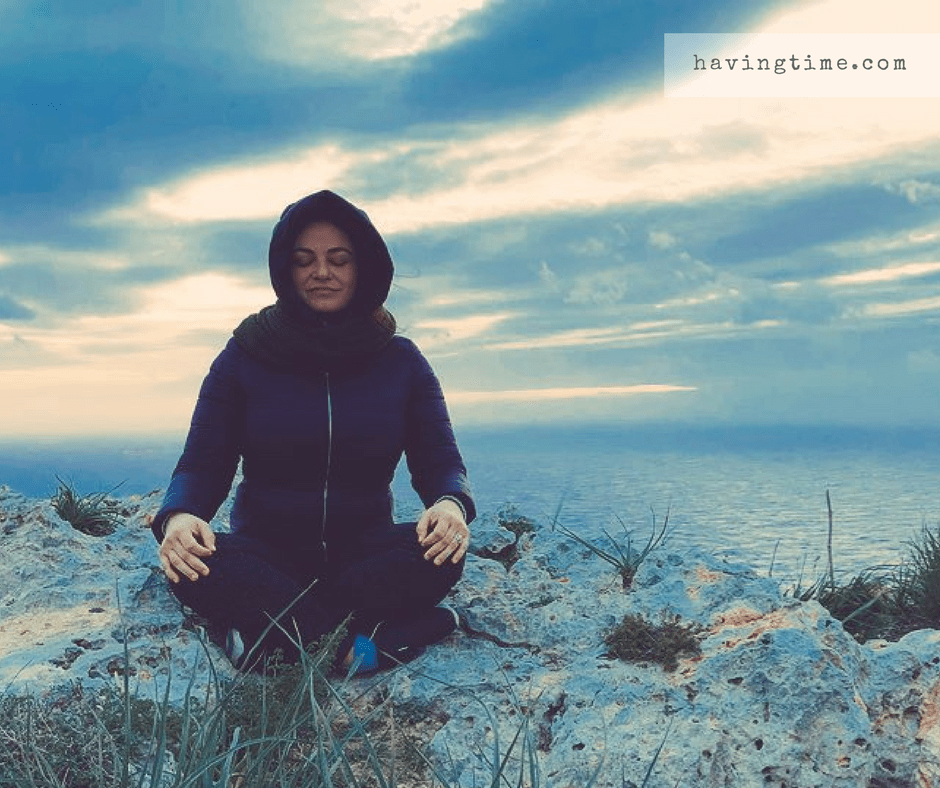
Why should you start practicing mindfulness?
There are 5 (good) reasons…
I’ve never had an epiphany, not in any sense of the word – spiritual, biblical, whatever. No unseen voice guiding me toward some monumental level of understanding, no single, unexplainable event that led me to a hidden utopia of truth and meaning, and certainly no burning bush as clear and present evidence of the existence of miracles. Hang on. Let’s think. Well, maybe just the one.
Yes, maybe that occurred the day my Mom and Dad drove to the next state over from where we lived, pulled my sorry and forlorn ass out of the family car, dumped me on the steps of a drug and alcohol rehabilitation facility, and then promptly drove off again. Yes, I guess if there was one moment, considering my life as it is now, that would be it.
They saved my life that day, you know? In fact, one of the resident physicians at the rehab told me after my long, painful detox that if I hadn’t have made it there (or to another facility with appropriate medical care), I’d have been close to death, whether I was drinking and using or not.
So, if being close to one’s own life’s end, and then surviving, qualifies as an epiphany, a moment when something inside of you changes so fundamentally, then yes, that was it.
I’m now over 9 years down the road of my recovery and have never faltered, not once, every single day spent clean and sober, and constantly healing. In rehab, after being detoxed of all the alcohol and methamphetamine that had so diluted my soul, I began a 6-month journey of discovery, and part of that learning process was mindfulness.
So, what is mindfulness anyway?
Mindfulness could be described as “the psychological process of bringing one’s attention to the internal experiences occurring in the present moment.” This article will explain how mindfulness meditation became one of the essential keys to my recovery, how it helped me to deal with the anxiety, and increased the sense of well-being.
Anxiety Can Be Tamed
Addiction leads to anxiety – the life of an addict is one that is a wholly anxious existence.
When your whole day centers around your desire to get drunk or get high (or both), and whether you’ll get what you think you need, your life becomes one fraught with fear. Furthermore, on my arrival at the rehab, I was diagnosed with a co-occurring disorder – addiction (obviously) and depression too. Depression can also lead to anxiety.
Mindfulness meditation classes were part of my prescription. Both the physicians and psychologists agreed it was essential that a way was found where I could feel calm, and find calmness when I needed it, as well as slow down my ever-racing thoughts.
Before long, I could feel myself relaxing, and calming down too. It wasn’t long before I honestly started to feel less anxious, and, in time, even huge, previously incomprehensible things, such as my future and my life beyond rehab, were seen in a completely different light. I also became more emotionally resilient to what was happening around me, in terms of my family and friends.
To this day, by using mindfulness meditation as part of my daily life, I deal with anxiety in a totally natural way. In fact, I just don’t get as anxious in the first place. That’s half the battle.
Creating Your Own Headspace
Mindful meditation brings many benefits, but in my desire to deal with everything that was going on (the pressure of staying clean and sober, for one), it gave me space – a headspace where I could be calm, be logical, and be alone with myself. That space was a godsend in the early months of recovery.

Focus as a Superpower
If you know anything about the effects of addiction, you’ll be aware that your ability to focus and your levels of concentration are virtually zero, and it takes really hard work to get them back.
So, I worked – I worked at my mindfulness, and I never skipped my meditation practice.
Having that focus, that concentration, back in my everyday life was a blessing, a true superpower.
Pure Thinking
Since beginning this road to recovery, my thought processes have improved, and are now clear and concise, every single day.
I can focus on and then retain new information like a college student.
Problems come along (mindfulness doesn’t make you immune from them), as they do for us all, but, unlike my past self, I can rationalize, think, and then make decisions as to how best to deal with them.
Worry-Free
For the last 5 years, as my sense of mindfulness and my sobriety has got stronger, I have had no recurrences of the depression I used to suffer from.
I no longer worry about everything, as I used to.
Mindfulness has shown me a strength of character within myself that has previously been hidden.
When a problem arises, I am far more confident in my ability to solve it, to find a beneficial solution, as opposed to thinking it will just go away on its own.

Simply By Its Practice
Mindfulness, thankfully, is now being promoted actively by medical professionals as a way of dealing with anxiety, and many more people will find solutions to their problems simply by its practice.
These 5 reasons – will hopefully push you in the direction of actively pursuing this yourself.
I hope so, and I can 100%, hand-on-heart recommend it to you. Yes, follow the other advice of your healthcare professional – quit drinking, quit smoking, do exercise, eat healthily, etc., but PLEASE include mindfulness meditation in your new schedule for a less anxious and better life.
Lastly, on the day I left rehab, there was a familiar-looking car parked outside, and a very emotional Mom and Dad leaned against it, both with tears and smiles, tears and smiles…
Would you like to see if mindfulness could help resolve certain issues in your life? Please share your thoughts with me in a comment section down below.
Thank you.


